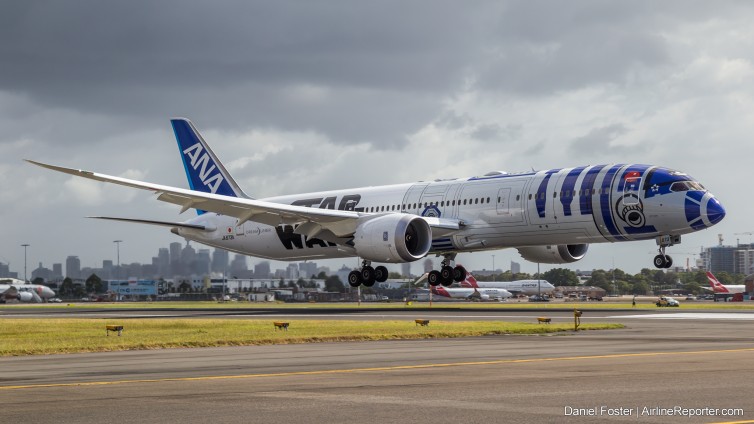
All Nippon Airways (ANA) has returned to Sydney after a 16-year hiatus, operating their Boeing 787-9 Dreamliners from Tokyo”s Haneda Airport. A stand-out from any other inaugural flight, the ANA Star Wars jet made its debut appearance in Australia”s largest city to celebrate this special event, as well as the upcoming film. As an avid Star Wars fan, I was compelled to be present for the arrival of this work of art.
As exciting as the prospect of ANA returning to Sydney was, the highlight for me was the aircraft tour shortly after arrival.
After a period of rushing around issuing visitor passes to the media crews, the bus had us out at the runway 15 minutes prior to the arrival of the Star Wars Dreamliner. I was also made aware that people had flocked to the airport to witness this spectacle, with all the usual aircraft spotting areas full. Spotting at Sydney Airport can be a challenge to even the most experienced AvGeek, with runway selections seeming arbitrary at times. Fortunately on this occasion, the plane landed on the runway we hoped for.
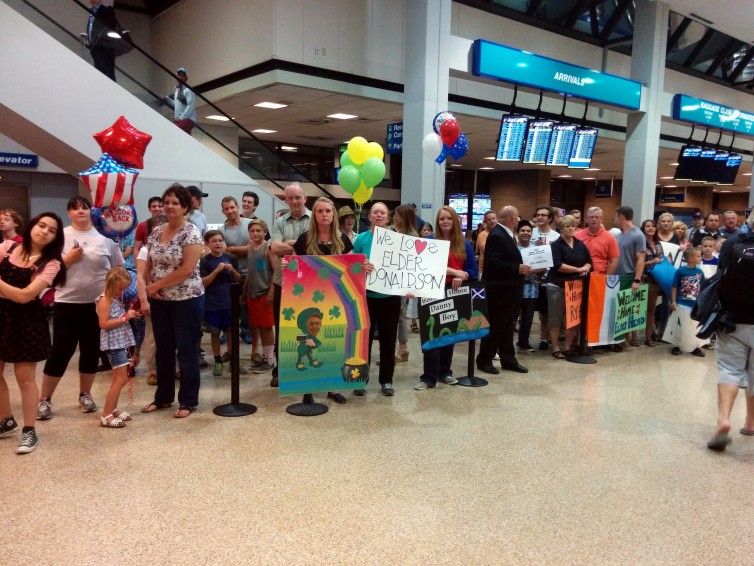
I like flying, but it is also tiring. If I have had a few connections (perhaps some missed connections), a bumpy flight, long layovers, or an extra early wake up call, I’m worn out. When I land, I just want to get off a plane, grab my bags, and get home. I really don’t want […]
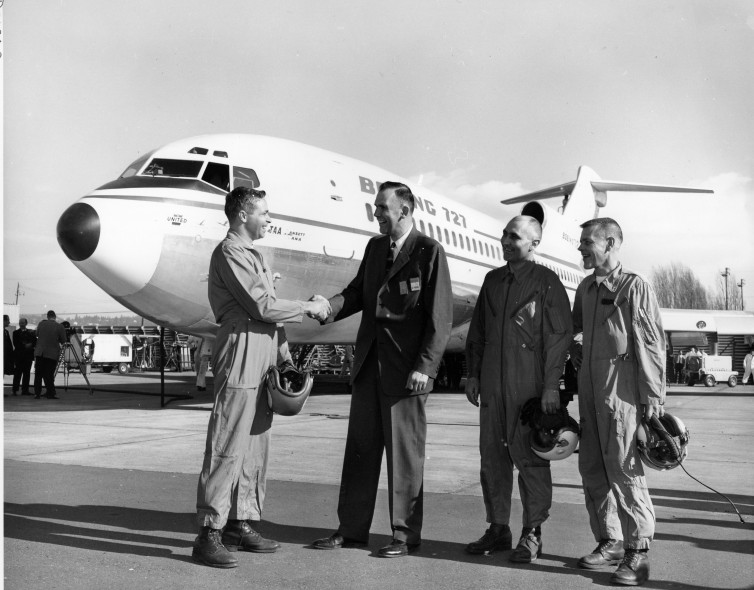
Introduction by David: We have been excitedly following the progress of preparing the first Boeing 727 for its final flight. We took a look at it being painted, got an update with the JT8D engines, and even did a tour of the cabin. I have been very impressed with how many other people are also excited about […]
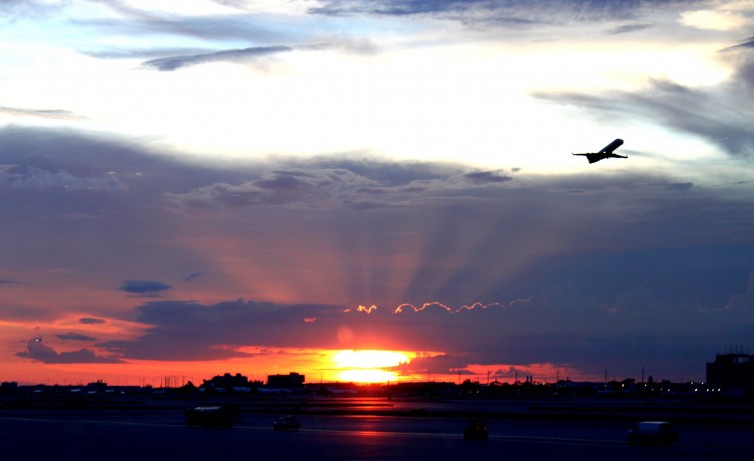
I”m an unabashedly proud airline brat. My father was an airline pilot for all of my childhood and continued into some of my adulthood. Even though he was the employee, my parents raised me and my siblings to feel pride in our membership in the airline family. I have found that my experiences are similar to many others who also had a parents flying commercial planes. Here are a few reasons why I loved growing up in an airline family, even if I spent half of my childhood prior to turning twelve sitting in concourses of Denver”s old Stapleton International Airport.
1. The excitement of the airport
Most people feel dread when heading to the airport for many reasons. Lines. Stripping down for security. Lines. Delays. Crowded corridors. Expensive food and stores. Did I say lines?
However, growing up as an airline pilot”s son helped make the airport exciting. Which planes — the vast majority of which I could identify — would I see? Where would flights go? Would my parents take us down to the crew lounge or airport employee cafeteria where the other travelers couldn”t go?
That is geeky, but I even talked my dad once into spending a day to fly to Denver”s then brand-spanking-new airport just to explore it. You know I”m an AvGeek when I once took a date to watch planes takeoff and land at a park near a major airport”s runway (sadly that relationship didn’t work out — but I don’t blame the planes).
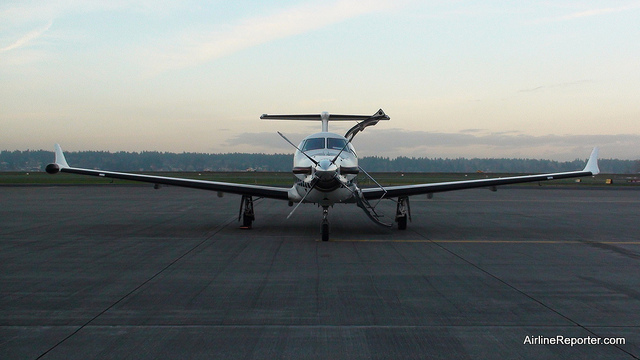
The more hours you have in your logbook, the cleaner your shirt is. By the time a pilot gets to the captain”s seat at a commercial airline, he or she has spent years wearing a white shirt while doing blue collar work, but her passengers will never know to what extent. Blue collar is not the image the public sees. What they see is a white uniform shirt with icons and symbolism dripping from the pilot”s shoulders and chest announcing experience, but it really represents the unglamorous hours spent behind the scenes, drenched in fuel, coffee, oil and blue juice.
From the first flight lesson to pre-flighting a heavy, pilots get used to wearing (and avoiding) petroleum products. Sumping fuel tanks, wiping dripping brakes, checking hydraulic and oil levels, and brushing up against leading edges smashed with bug guts all while keeping a white shirt clean is a learned talent; by the time pilots start flying corporate, they have it perfected.
Corporate passengers don”t realize that it”s sometimes one of the pilots who had to jump on a tug and move the aircraft out of the hangar onto the ramp. In the winter, pilots have also shoveled and plowed snow in front of the hangar. Then, the pilots have not only pre-flighted and prepped the aircraft, checked the weather, filed a flight plan, made the coffee, loaded the ice, soda, snacks, newspaper, magazines and catering, but they”ve also cleaned the wastebaskets, checked the lavatory blue juice levels, and made sure there was enough toilet paper. Very glamorous.




